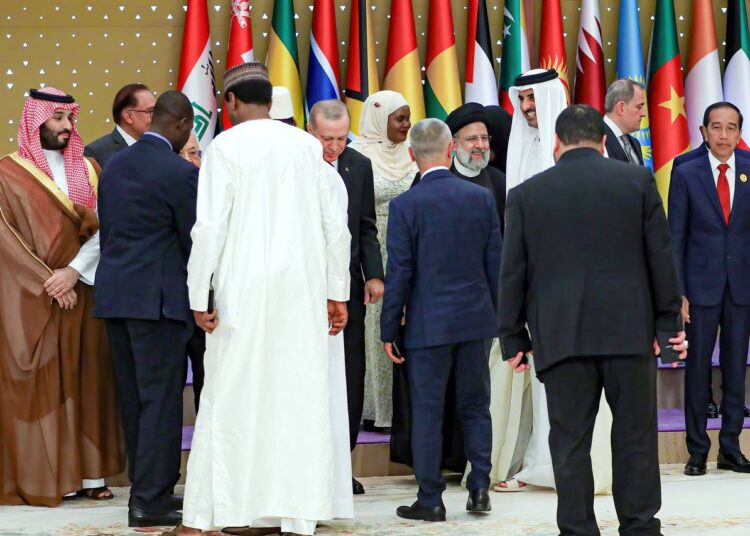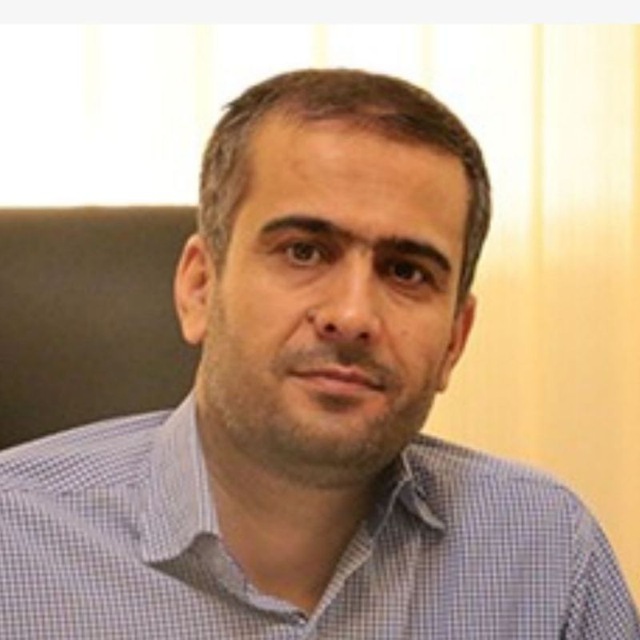The incongruity of bringing together 57 leaders, who failed to make a practical decision to deliver even a liter of fuel to a pediatric cancer hospital or a carton of biscuits to starved children of Gaza, may arguably prove to be a more significant disaster than the ones unfolding in Gaza itself.
By Saber Golanbari
On a recent Saturday, the city of Riyadh served as the venue for a crucial gathering of Islamic and Arab leaders. The meeting aimed to alleviate the plight of the people of Gaza and cease the devastating conflict that has trampled both moral boundaries and laws of warfare. Nevertheless, the summit’s outcome, as delineated in the concluding statement, barely transcended reproach and requests, devoid of rudimentary decision-making or practical initiatives.
In an array of fiery orations by leaders from Arab and Islamic nations such as Jordan, Egypt, Saudi Arabia, Iran, and Turkey, the catastrophic war was depicted as tantamount to genocide, a crime against humanity, and collective punishment. Paradoxically, no specific means were proffered to facilitate aid distribution or initiate a robust diplomatic push to terminate the conflict.
Effectively, the multiplicity of interests, policies, alliances, internal disagreements, rivalries and caution toward potential repercussions, diluted any attempt at consolidated action from the Islamic world. The absence of accord for a collective humanitarian response, even to provide rudimentary fuel or medical supplies to Gaza’s hospitals, underscored Iran’s proposition for military and weapons aid as a futile expenditure.
The deployment of military assistance to Hamas and Palestinian groups in Gaza and the dispatch of troops under the prevailing geopolitical conditions is deemed fundamentally unfeasible. Furthermore, no nation seems inclined to embrace such risk. The problems entrenched in Gaza largely stem from an unparalleled humanitarian crisis.
Arguably, the focus of the Islamic leaders could have been better directed toward the barest humanitarian minimum, accompanied by suitable action plans. Even such rudimentary decisions were conspicuously absent.
A multitude of civilian strategies to aid Gaza exist, each potent enough to exert diplomatic pressure on the United States and Israel, and ultimately cease the conflict. Yet the will to execute such tactics remains missing. For instance, Saudi Arabia could wield some pressure by openly threatening to reconsider its normalization with Israel.
Turkey, known for its firm diplomatic posturing, could heap additional pressure on Israel by slashing or imposing restrictions on oil exports via the Ceyhan port, any trade reductions; a tactic resonating with its actions post the 2017 Kurdistan Region of Iraq referendum. Nonetheless, Ankara’s typically calculative stance seems to prevent such determined decisions due to anticipated political fallout.
The necessity of a practical solution or decision regarding the provision of vital humanitarian aid for the vulnerable in Gaza, especially the children and civilians, was agonizingly untouched. Presently, such aid should be prioritized more than ever, given the dire conditions in Gaza.
During a conversation with a journalist in Gaza, I was given a disturbing insight into the human tragedy unfolding there. The unchecked act of savagery, shocking for a twenty-first-century society, was heartbreaking. Upon learning that food reserves in most areas had depleted and mere biscuits and brackish water remain as the sole sustenance, particularly for children and infants, accompanied with fear as a result of continuous bombardment.
He indicated that certain families did not even have these paltry supplies and are confined to their residences—primarily in northern Gaza—without any access to sustenance or drinkable water. He suggested the catastrophic aftermath of the war will become perceptible upon cessation; only then will the discoveries of unfortunate women and children who succumbed to starvation in their homes truly reveal the depth of the disaster.
In the current circumstances, where the Rafah Crossing stands in disarray and Egypt, faced with threats from the US and Israel, appears incapable of asserting independent decisions and actions, one could reasonably anticipate that at minimum, the emphatic speeches of Arab and Islamic leaders would culminate in collective action by all 57 nations. It seems that dictators can only use force to the people under their tyranny. The proposed action could comprise sending, for instance, a civilian vessel laden with humanitarian aid, sailing through the international waters of the Mediterranean and escorted by a representative from each Arab and Islamic country, bound for the port of Gaza. The eventuality of Israel sinking a ship escorted by officials from 57 nations seems implausible.
In summary, the incongruity of bringing together the leaders of 57 Arab and Islamic nations, who then display their collective incapability in making a practical and instantaneous decision to deliver even a liter of fuel to a pediatric cancer hospital or a couple more cartons of biscuits to the starved children of Gaza, may arguably prove to be a more significant disaster than the ones unfolding in Gaza itself. The stark reality could potentially breed a collective sense of shame.
The views expressed in this article are those of the author and do not necessarily reflect the positions of Iran Nuances.






